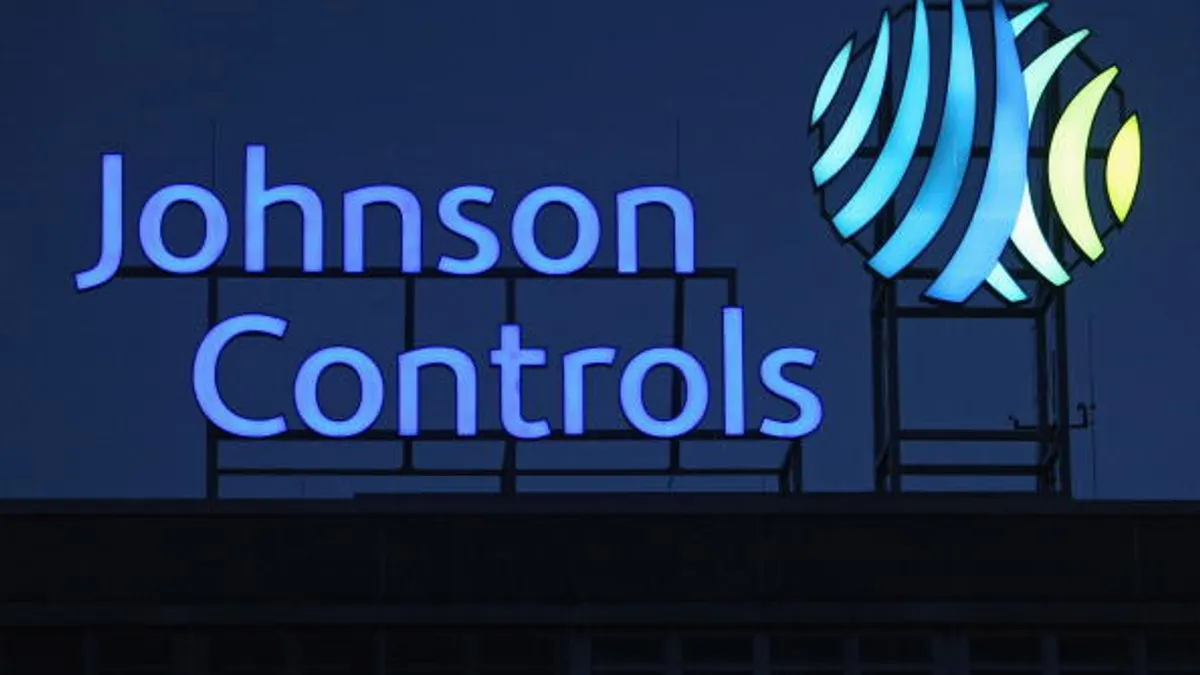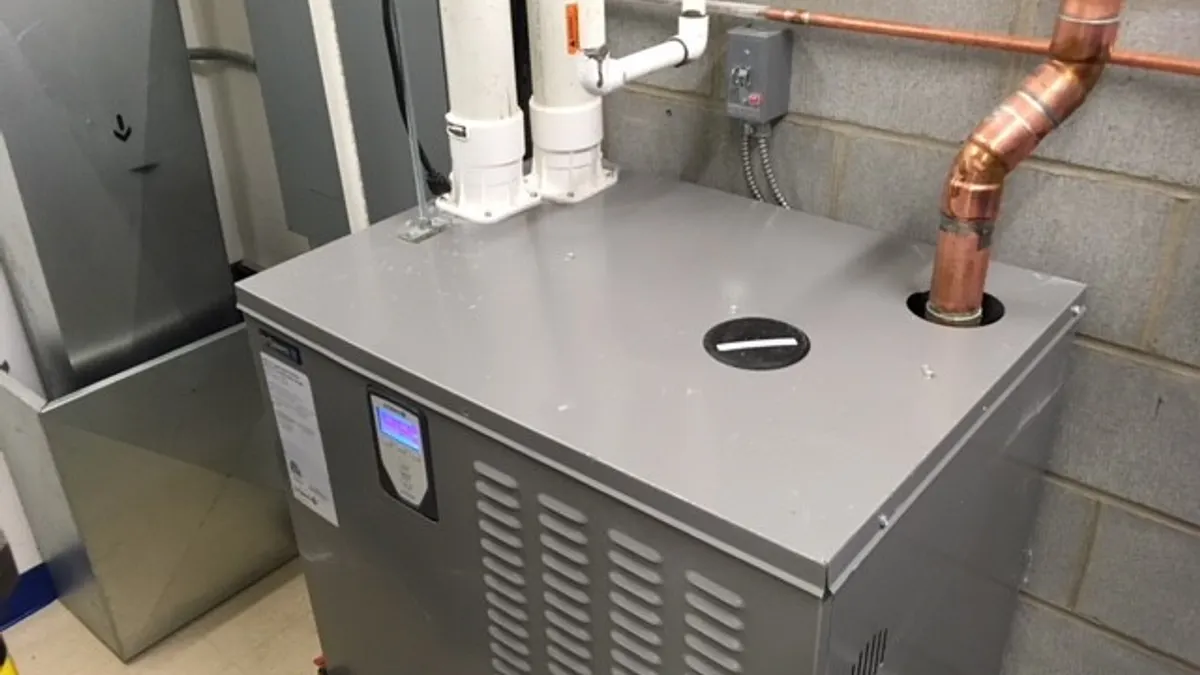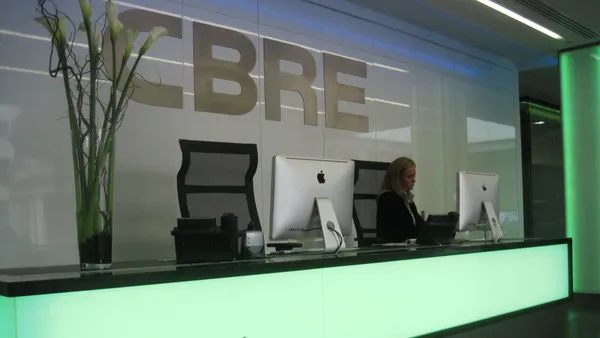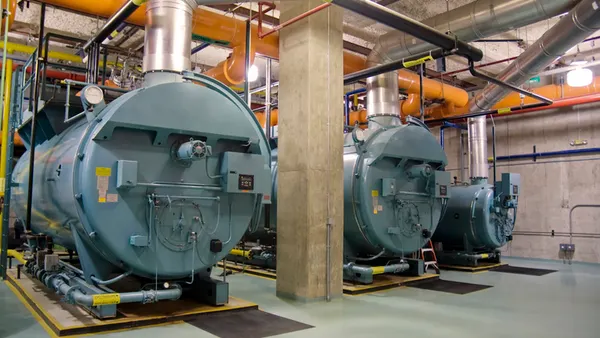Dive Brief:
- Data centers and healthcare drove 5% order growth and 7% sales growth for Johnson Controls’ North American business, offsetting tepid or falling growth in other geographies, the company said Tuesday.
- The company’s applied segment, which includes large commercial HVAC equipment along with building management systems and controls, saw high single-digit growth, according to the company’s Q3 2025 earnings presentation. JCI’s fire and security segment saw slower growth amid “product gaps,” CEO Joakim Weidemanis said on an investor call Tuesday.
- JCI is developing a new business system to make its operations and sales processes more efficient as it undertakes a strategic review that “over the next couple months will start to draw conclusions about what our portfolio will look like moving forward,” Weidemanis said.
Dive Insight:
In his second earnings call since taking the top job at Johnson Controls in March, Weidemanis detailed his vision for a leaner, more nimble company.
Weidemanis highlighted two early deployments of JCI’s new business system that he said have begun to bear fruit, including a plan to streamline commercial HVAC sales processes that could eventually slash sales times in half. A similar initiative on the operations side could halve equipment lead times for chillers in North America while normalizing inventory levels and boosting factory output, without corresponding capital investments, he said.
JCI sees those efforts as key to its advantage in the high-demand data center market, where customers value shorter lead times, Weidemanis said. They could eventually extend to its slower-growing fire and security business line, he added.
“Being able to deliver faster than others is an important part of our competitive advantage,” he said.
The new CEO’s vision for a more efficient company apparently extends beyond sales and operations to core internal functions like accounting. The company is improving what Weidemanis called its “first-pass yield on customers paying invoices” in an effort to reduce billing error rates and improve the customer experience.
“If you have a couple of percent of invoicing errors that you need to redo versus less than 1%, that not only impacts customer satisfaction, but of course, also your cash flow,” he said.
These process improvements should strengthen JCI’s financial position over time as the effects of the sale of its residential and light commercial business last year roll off its balance sheet and tariff impacts lessen, said Chief Financial Officer Marc Vandiepenbeeck.
Vandienpenbeeck described the hit from the Trump administration’s on-again, off-again import tariffs as mixed but manageable. Johnson Controls has passed more of the pricing impact from tariffs to customers in markets where it had strong pricing power and less of the impact in more competitive markets, but the environment remains “dynamic,” he said.
“There’s [still] a bit of uncertainty on what tariffs will do on the bottom line,” he said. “So far, we've executed very well, but we've taken [a] conservative view into the fourth quarter.”
In its second quarter earning report for fiscal year 2025, published about a month after Trump’s April 2 “Liberation Day” tariff announcement, JCI said it would mitigate the levies’ expected 2% to 3% bottom-line impact through a combination of pass-through pricing, change orders, regionalized manufacturing and investments in more resilient supply chains.
Despite uncertainty around global trade flows, JCI’s Americas order backlog grew 10% in the third quarter “at record levels,” Weidemanis said. A growth in orders for systems — such as HVAC equipment and controls — outpaced growth in orders for services, which Weidemanis flagged as a possible growth area in the coming quarters.
The CEO also noted an intent to enhance investment in research and development to accelerate innovation.
“In some businesses, we can add more differentiated service products to our portfolio,” he said. “When we talk about investments in innovation, we are talking not only about systems but service products as well … to deliver more outcome-oriented services.”
But Weidemanis also suggested JCI services and its fire and security business line could face scrutiny from the company’s strategic review. JCI’s focus on “the premium or more sophisticated side of the market” for fire detection puts it at a disadvantage to competitors like Honeywell and Allegion, he said.
“Like I said, we're working away at the strategic review of the portfolio diligently [and] thoughtfully,” he said. “Once we have a conclusion, we will certainly let you know.”











